About
The goal of the Civic Science Fellows Program is to catalyze progress toward a future where all people can shape science to expand its benefits and horizons.
Seeding Transformative Change
The Civic Science Fellows program is building a network of leaders working to advance change across sectors—so people from all backgrounds shape science and benefit from its power and promise. The program brings together an interdisciplinary network of journalists, bench and social scientists, community-facing practitioners, content creators, public-interest organizations, and funders to develop evidence-based, human-centered approaches to build meaningful collaboration between science and diverse communities. Civic science goes beyond science outreach, co-creating a culture in which science is strengthened through evidence-based engagement with people across diverse issues and experiences, and scientists are equipped to anticipate and engage around the civic context of their work. The program is supported by a growing community of leaders and organizations who recognize that a culture of civic science will be key to solving the grand challenges of today and tomorrow.
The program, designed as a civic science lab, was established in 2020, with initial support from the Rita Allen Foundation, Burroughs Wellcome Fund, Chan Zuckerberg Initiative, The Kavli Foundation, Gordon and Betty Moore Foundation, and David and Lucile Packard Foundation. In 2021, a second cohort launched with support from 35 funding and host partners, and in 2024 a third cohort launched—with partners recognized below.
Practice and Science of Civic Science Advisory Committee
The Practice and Science of Civic Science Advisory Committee members are experts and practitioners across diverse fields and sectors. Drawing on their knowledge and relationships, they strengthen the work of the Fellows and link the program to other relevant efforts.
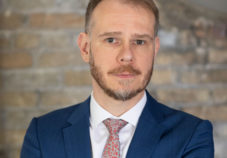
Dietram A. Scheufele, University of Wisconsin-Madison (Committee Chair)
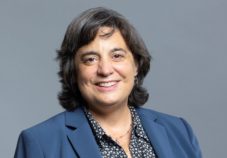
Mariette DiChristina, College of Communication, Boston University
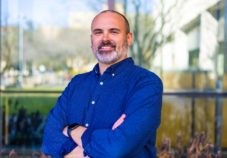
Anthony Dudo, University of Texas at Austin
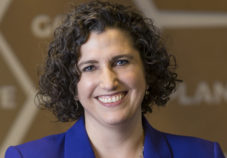
Kirsten M. Ellenbogen, Great Lakes Science Center
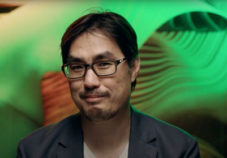
Ernest Koe, Proof+Geist
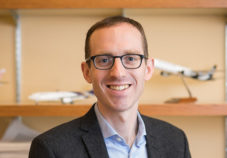
Adam Levine, Johns Hopkins University; research4impact
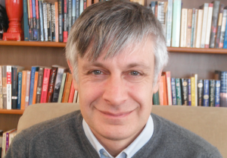
Peter Levine, Tisch College, Tufts University
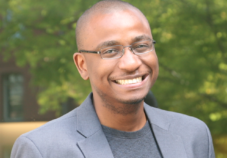
Fanuel J. Muindi, Civic Science Media Lab
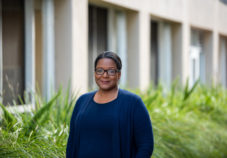
Naledi Marie Saul, UCSF Office of Career and Professional Development
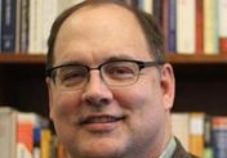
Daniel Stid, Lyceum Labs

Yamilée Toussaint, STEM From Dance
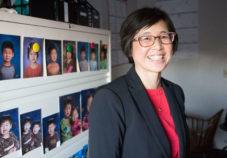
Joyce Yen, University of Washington ADVANCE Center for Institutional Change
2021-23 Committee
- Frances Colón, Center for American Progress
- Mariette DiChristina, College of Communication, Boston University
- Kirsten Ellenbogen, Great Lakes Science Center
- Ágnes Horvát, Northwestern University
- Adam Seth Levine, Stavros Niarchos Foundation Agora Institute and Bloomberg School of Public Health, Johns Hopkins University
- Peter Levine, Tisch College of Civic Life, Tufts University
- Percival Matthews, University of Wisconsin–Madison
- Dietram A. Scheufele, University of Wisconsin–Madison (Committee Chair)
- Tiffany Taylor, National Academies of Sciences, Engineering, and Medicine
- Nikhila Kalra, ORS Impact (Advisor)
- Joyce Yen, University of Washington ADVANCE Center for Institutional Change (Advisor)
2020-21 Resource Partners
- Ann Christiano, Center for Public Interest Communications
- Britt Lake, Feedback Labs
- Alondra Nelson, Institute for Advanced Study
- Kelley Gulley, Irvine Foundation
- Andrés Henríquez, New York Hall of Science
- Sarah Stachowiak, ORS Impact
- Nikhila Kalra, ORS Impact
- Adam Seth Levine, research4impact
- Christopher Volpe, Science Counts
- Linda Shaw, Solutions Journalism Network
- Jonathan Garlick, Tufts University
- Samantha Jo Fried, Tufts Tisch College of Civic Life
- Peter Levine, Tufts Tisch College of Civic Life
- Sunshine Menezes, University of Rhode Island
- Anthony Dudo, University of Texas at Austin
- Joyce Yen, University of Washington ADVANCE Center for Institutional Change
- Dietram A. Scheufele, University of Wisconsin–Madison
- Emily Howell, University of Wisconsin-Madison
- E. Alfonso Romero-Sandoval, Wake Forest School of Medicine
Host Partners
Civic Science Fellows are embedded in networked organizations, typically for 18 months, to co-create and pilot cutting-edge civic science projects—forging connections between science, technology, and civic life. Hosts are innovative organizations with high potential for leverage across different spheres and disciplines. They may include media organizations, community organizations, scientific societies, academic institutions, philanthropic associations, and nonprofits, among others.
Data Innovation Lab, Haas School of Business, University of California, Berkeley
2021-23 Host Partners
- Advanced Visualization Lab at the National Center for Supercomputing Applications, University of Illinois at Urbana-Champaign
- The Aspen Institute Science and Society Program
- Association of Public and Land-grant Universities/Center for Academic Innovation, University of Michigan
- Association of Science and Technology Centers (ASTC)
- Berman Institute of Bioethics, Johns Hopkins University
- Ciencia Puerto Rico
- College of Communication, Boston University
- Environmental Data and Governance Initiative
- National Geographic Society
- National Informal STEM Education Network
- Open Environmental Data Project
- Open Research Funders Group
- ScienceCounts
- Science, Media, and the Public Research Group, University of Wisconsin-Madison
- Science News
- Science Philanthropy Alliance
- Shorenstein Center on Media, Politics, and Public Policy, Harvard Kennedy School
- Sigma Xi
- SNF Agora Institute, Johns Hopkins University
- Standing Committee on Advancing Science Communication, National Academies of Sciences, Engineering, and Medicine
- The US–UK Fulbright Commission/Center for Science Communication Research, University of Oregon
2020-21 Host Partners
- Alan Alda Center for Communicating Science, Stony Brook University
- American Association for the Advancement of Science (AAAS)
- American Geophysical Union (AGU)
- American Society for Cell Biology (ASCB)
- Association of Science and Technology Centers (ASTC)
- Center for Media Engagement, University of Texas at Austin
- National Geographic Society
- Open Environmental Data Project
- Research!America
- Science in Society Funder Collaborative
- Science Philanthropy Alliance
- Shorenstein Center on Media, Politics, and Public Policy, Harvard Kennedy School
- US–UK Fulbright Commission
- WGBH
Funding Partners
The partner funders of the Civic Science Fellows program provide financial and other support for Civic Science Fellows and their host institutions, including expertise and network resources to help make these partnerships and related future efforts a success. Funding partners engaged across cohorts include:















